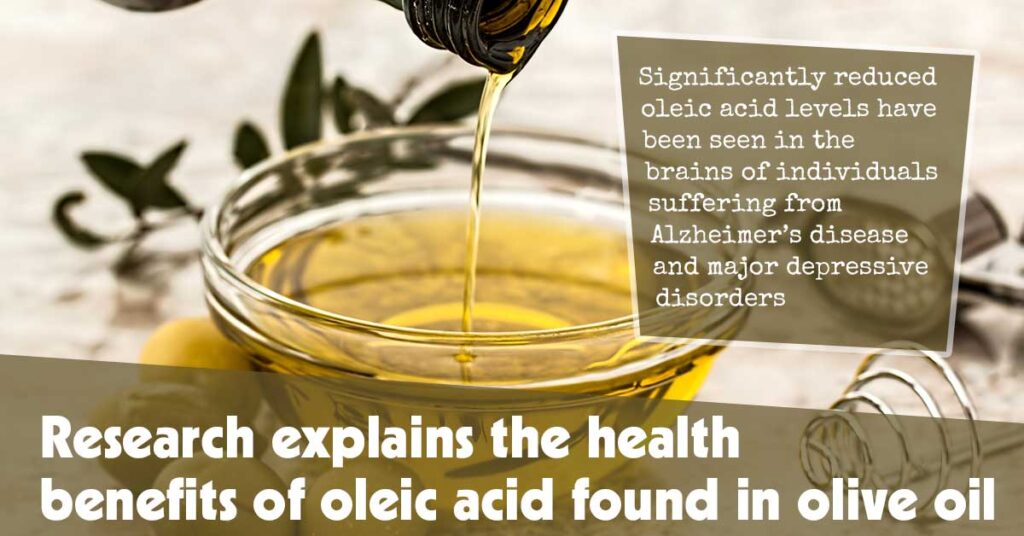Oleic acid, the key constituent of olive oil, contains properties which help prevent Alzheimer’s disease and cancer as well as reduce cholesterol.
Olive oil’s health benefits, typically attributable to minor components like polyphenols, have long been studied scientifically. But little thought has been given to oleic acid’s contributions – which account for between 70-81% of olive oil’s composition – which make up 70%-80% of this substance’s makeup. Therefore researchers conducted an in-depth investigation on its primary health impacts.
Olive oil’s primary component, oleic acid, provides numerous health-promoting attributes. Our diet produces it and our bodies synthesize it for us to consume as a food source; indeed it is one of the most abundant monounsaturated fatty acids (MUFA) found in food sources today.
The Mediterranean diet has long been recognized for its ability to combat both aging and disease. Olives are widely available throughout this area, providing their oil as the main nutrient. Other features of the Mediterranean diet include high vegetable consumption, moderate fish intake, moderate dairy intake, limited red meat consumption and moderate wine intake.
Oleic acid is the main MUFA found in circulatory system and plays an essential role in brain myelin sheaths; significantly reduced levels have been detected among individuals suffering from Alzheimer’s disease or major depressive disorders.
Oleic acid serves a dual purpose as both an energy molecule and cell membrane constituent, acting both as an energy provider and protector against atherosclerosis. One of its most distinctive properties is its antioxidant activity: it can regulate both activity and synthesis of antioxidant enzymes directly. Oleic acid also has hypocholesterolaemic effects by inhibiting protein expression linked to cholesterol transport; decreasing absorption rates while helping prevent atherosclerosis altogether.
Oleic acid has long been recognized as an anti-cancer molecule due to its overexpression of oncogene inhibitory effects and influence on programmed cell death. Furthermore, many consider oleic acid an anti-inflammatory molecule although this quality remains up for debate among researchers.
Oleoylethanolamide, an oleic acid derivative with antioxidative and anti-inflammatory effects, has been proposed as a potential treatment option for obesity.
Recent research indicates that it could impact epigenetic mechanisms (DNA modifications and proteins associated with them) as well as immune system modulation by controlling cells involved with inflammation.

